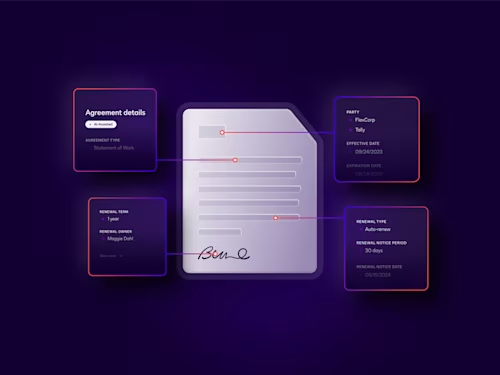
Growing Federal Government Acceptance of Electronic Signatures
Federal acceptance of e-signatures continues to expand at a rapid pace – especially as citizens have expectations of the government to offer self-serve tools.

Over 20 years ago, the landmark Electronic Signatures in Global and National Commerce (ESIGN) Act was passed in the U.S. to address the growing need for a consistent standard for electronic signatures. While this legislation certainly paved the way for the use of electronic signatures in government, it wasn’t until the COVID-19 pandemic when agencies were truly forced to use this innovation for meeting citizen needs during a challenging time.
The federal acceptance of e-signatures continues to expand at a rapid pace – especially as citizens have high expectations of the government to offer self-serve, mobile-friendly, digital tools that are available 24/7. Here’s an overview of some recent progress in federal agencies to modernize agreements and processes.
General Services Administration leading the way
At the end of last year, the General Services Administration (GSA) announced that contractors will now use Docusign eSignature to digitally sign documents in eOffer and eMod. eOffer and eMod are web-based applications that allow industry partners to prepare and submit their GSA Schedule offers and Schedule contract modification requests electronically.
According to the GSA, this change is part of the agency’s overall IT modernization efforts to support security and provide a solution that is widely recognized and accepted throughout the industrialized world.
IRS beginning to adopt electronic signature
Despite being one of the most digitally-forward agencies with a history of offering eFiling that dates back to 1986, the Internal Revenue Service (IRS) has been slow to accept electronic signatures from tax professionals. In addition, every year, the public spends more than 8 billion hours filling out tax returns, costing the public more time than every other agency combined.
Thanks to the Taxpayer First Act, the IRS officially launched a new online option that will help tax professionals to remotely obtain signatures from individual and business clients and submit authorization forms electronically.
This is an extension of some of the 2020 changes that the IRS made regarding electronic filing due to the COVID-19 pandemic. For example, there are a number of new forms that can be submitted with electronic signatures if mailed on or by June 30, 2021.
SEC embraces broader use of electronic signatures
The Securities and Exchange Commission (SEC) rules require public companies to file annual and quarterly financial statements to provide transparency for investors. While a vast majority of these filings are done electronically, SEC rules previously required a physical signature authentication page with the electronic filings.
With approximately 6,000 companies publicly traded on the NYSE and the NASDAQ in 2019, the SEC received 644,000 filings from 131,000 filers. Approximately 105,000 of the filings had multiple signatures, and the current cost estimate to public companies for preparing disclosure documents is over $4 billion. The direct cost to the SEC for reviewing and processing disclosure documents is over $100 million annually.
Thankfully, the SEC’s recent changes to Rule 302 allows public companies to use electronic signatures on SEC signature authentication documents that were formerly submitted only by physical signature.
The paperless government mission
These recent efforts at the IRS, SEC, and GSA supports the overall paperless government mission, where federal agencies are moving away from the nearly $40 billion spent on paper-intensive, manual processes that have nothing to do with their missions.
Today, more than 3,000 federal, state and local government agencies in all 50 states use Docusign to work remotely with electronic forms, agreements, applications, correspondence management and approval processes.
As we are seeing with these agencies, digital transformation is allowing government agencies to focus on the mission by eliminating manual tasks around signing, routing and filing government paperwork.
With FedRAMP Moderate/IL4, the Docusign Agreement Cloud for Government helps federal agencies to focus more on their missions by bringing together a comprehensive set of applications and integrations to modernize their systems of agreement.
Related posts
Docusign IAM is the agreement platform your business needs


